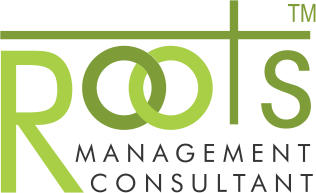ISO/IEC 17020:2012 Standard for Conformity Assessment System
ISO/IEC 17020 Conformity assessment – requirements for the operation of various types of bodies performing inspection have been developed in response to build confidence in the Inspection bodies. Accreditation to inspection bodies is a procedure by which an authoritative body gives formal recognition of technical competence for specific inspection, based on third party assessment based on ISO/IEC 17020:2012 standard. This International standard ISO/IEC 17020:2012 is drafted in accordance with the rules given in the ISO/IEC Directives, Part 2. ISO 17020 Accreditation is managed by IAF MRA (International Accreditation Forum Multilateral Recognition Arrangement). IAF is engaged upon development and updating of guidelines connected with accreditation activities. Such international arrangements facilitate acceptance of inspection results between countries to which MRA partners represent. On accreditation as per ISO 17020 standard of Inspection bodies by such recognized body the inspection report of Inspection bodies gets global acceptance due to such mutual recognition. The standard was initially published in year 1998 and then it was revised in 2012. At present the 2012 version is in the implementation. The ISO17020:2012 standard has categorized inspection bodies in three major categories as under;
- Type – A Inspection body, means an independent inspection body, which is only engaged in inspection activities (independent of the parties involved),
- Type – B Inspection body, means inspection services shall only be supplied to the organization of which the inspection body forms a part, and
- Type – C Inspection body, means the inspection body shall provide safeguards within the organization to ensure adequate segregation of responsibilities and accountabilities between inspection and other activities.
Benefits of ISO/IEC 17020:2012 System
- Improved efficiency, productivity and effectiveness in the overall Inspection bodies operation,
- Improved level of motivation, co–operation, workmanship and quality awareness including competence,
- Increase of confidence in Inspection data and of personnel performing work. Greater control of processes and activities throughout Inspection bodies. Savings in terms of time and money due to reduction or elimination of the need for re–inspection / re–work etc.,
- Provide tips on analysis of data as well as perfect record keeping.
- Provide guidelines and better control for maintenance of equipment, preservation of inspection records etc
- Establish confidence of management and customers on results as well as reports and increase customer trust as well as market share.
- Better image of Inspection bodies as a Quality inspection bodies in Global market.
- Worldwide recognition and credibility.
- An ISO 17020:2012 accredited inspection body has a definite edge over competitors.
ISO/IEC 17020 Accreditation Certification
The ISO/IEC 17020:2012 Accreditation Certificate is issued by accreditation body, which is authorized by IAF MRA to provide accreditation under the ISO/IEC 17020:2012. The iso 17020 certificate is issued for the period of 2 years after successful completion of pre–assessment and registration (Final) assessment. The certificate is valid till 2 years from the date of issue. Surveillance audits are conducted by the Accreditation body after one year. Upon completion of 2 years cycle, at every 2 years renewal audit will be conducted without any periodic surveillance assessment.
ISO/IEC 17020:2012 is an accreditation, which is granted to the Inspection bodies by an ILAC / APLAC approved accreditation body. It is an accreditation not certification like ISO 9001, ISO 14001 and other system certification.
Steps involved in ISO/IEC 17020 Consultancy Services
Roots Management Services is having vast experience in ISO 17020 consultancy for the implementation and certification of ISO/IEC 17020:2012 for all types of inspection bodies, such as container Inspection bodies, fire door inspection bodies, grocery inspection bodies etc.
Roots Management, an ISO 17020 consultancy in Ahmedabad India develops the system for its customers in the following manners:
- Micro–level survey for each and every inspection parameter of the Inspection bodies and preparation of detail Gap analysis report,
- Preparation of applicable documents required by ISO/IEC 17020:2012 based on detail study of all activities of the Inspection bodies, such as;
- ISO 17020 Quality Manual,
- Quality Procedures for ISO/IEC 17020:2012 accreditation (Mandatory procedures required by the standard),
- Standard Operating Procedures (SOPs) for inspection of various activities as well as operation and calibration of identified equipments used in the inspection,
- Formats to establish the objective evidence of implementation and to ensure control over all the inspection parameter.
- Preparation of Quality assurance plan for maintaining and assuring quality of inspection services provided to its customer,
- ISO 17020 training to all levels of employees within the Inspection bodies,
- Helps in effective implementation of system by periodic visit till accreditation,
- Conduct internal audit for iso 17020 system to check readiness for the accreditation.
- Conduct management review meeting in presence of Top Management to guide the Inspection bodies for effective implementation on all the issues related to inspection,
- Witnessing / demonstration of inspection activities to build confidence among the employees etc.
Technical Requirements of ISO/IEC 17020:2012
Inspection bodies have to identify the following technical requirements of ISO/IEC 17020:2012 during implementation.
- Nominate one person as Management Representative for establishing, implementation and monitoring of effective implementation of the management systems requirements,
- Nominate one person as Technical Manager for establishing, implementation and monitoring of effective implementation of the technical requirements,
- Inspection parameter, its location of performance, field of inspection, type and range of inspection and reference of proven inspection methods,
- Analysis of re–inspection results statistically,
- Comparison with other accredited inspection body to check the level of competence against other ISO/IEC 17020:2012 accredited inspection body based on statistical analysis.

